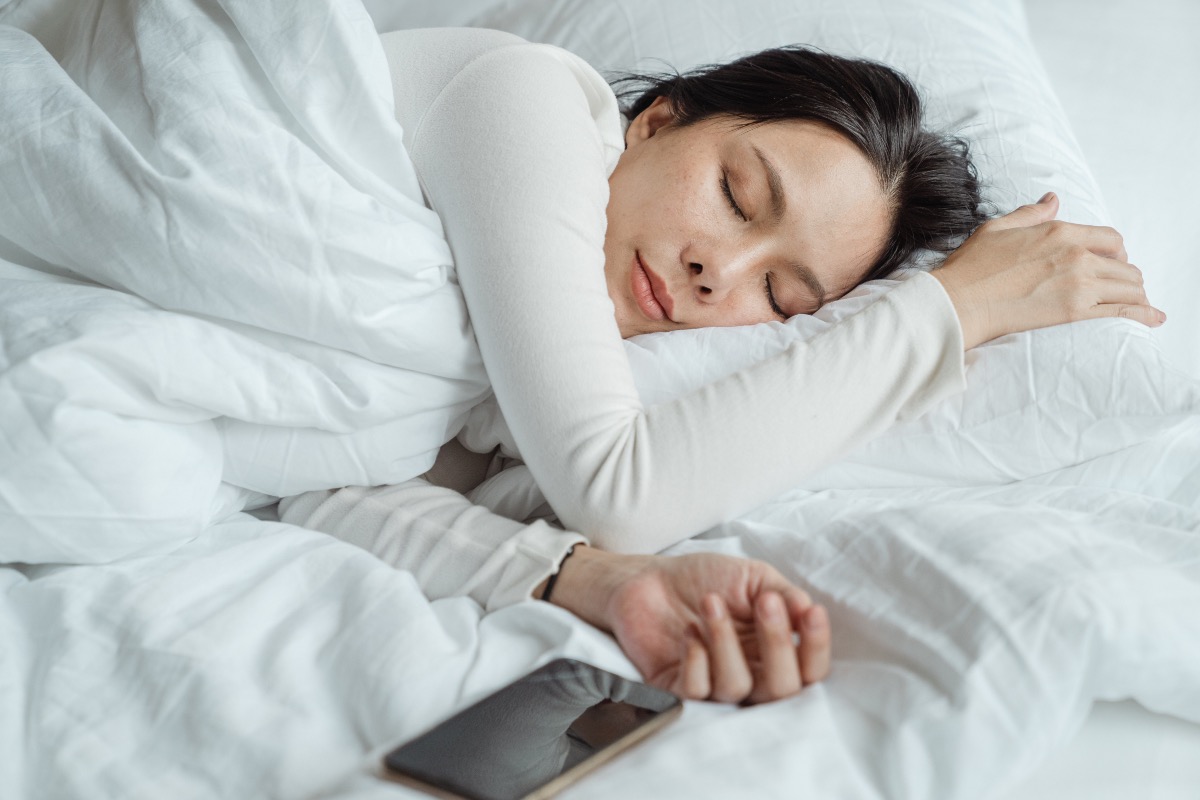
Updated on 3/3/2023
Sleep is a complex process that contributes to how we think, feel and behave in our conscious, waking lives. To better prioritize sleep in your daily routine, you may benefit from understanding what happens to the brain and body while we sleep and the benefits we can get from it. This blog dives into sleep’s importance for our mental and physical health.
The Stages of Sleep Cycles
To understand what happens when we sleep, we must first understand sleep cycles. The two types of sleep are rapid eye movement (REM) and non-rapid eye movement (NREM). NREM sleep can be divided into four stages, whereas REM is one stage. While we are sleeping, these sleep phases alternate. Every stage produces different brain wave patterns, eye movements and physical effects.
A typical sleep episode follows through the four stages of NREM sleep consecutively into the final REM stage. The REM stage is not the final sleep stage; instead, an individual cycles between NREM and REM several times throughout the night.
Stage 1: NREM
This initial sleep stage transitions us from wakefulness to relaxation. It typically lasts between one and seven minutes and can be easily disrupted.
Stage 2: NREM
In this stage, we experience a period of light sleep and greater relaxation. Brain wave activity begins to slow, and electrical activity will surface in bursts. During our initial sleep cycle, this stage may last 10 to 25 minutes but will gradually lengthen with each of the following sleep cycles.
Stage 3 and 4: NREM
These stages are known as slow-wave-sleep, or SWS. Stage three will only last a few minutes, whereas stage four will last between 20 and 40 minutes during our initial sleep cycle. Both phases are characterized by increased electrical activity and even reduced wave activity.
REM Sleep
REM sleep is characterized by bursts of rapid eye movements, loss of muscle tone and mixed frequency wave activity. REM is the most similar stage compared to the varied frequency waves experienced during wakefulness. Most of our dreaming occurs in REM sleep. As we age, we spend less time in REM sleep. Quality REM sleep is thought to be connected to memory processing, learning and emotional regulation.
Mechanisms of Sleep
Next to sleep cycles, two crucial internal biological mechanisms of sleep are circadian rhythm and homeostasis.
Circadian rhythms are often referred to as our bodies’ biological clocks. They help to regulate various functions, including body temperature, metabolism and wakefulness. Our circadian rhythm is responsible for controlling the timing of when we should be sleeping and when we should be awake. They sync with environmental cues, such as sunlight and temperature, to help us stay on a regular cycle with sleep.
Homeostasis helps keep track of our bodies’ need for sleep. In general, our sleep drive gets stronger as waking hours go by. When we finally do sleep, homeostasis causes us to sleep longer after sleep deprivation. Some factors that may affect our sleep-wake needs include:
- Exposure to light
- Medications
- Stress
- Sleep environment
- Diet
- Exercise
- Medical conditions
- Mental health conditions
Sleep, Mental Health and Substance Use Disorder
More than a third of Americans do not get adequate sleep at night. Studies correlate inadequate sleep with the development of chronic mental health disorders and associated mental health problems. Why is this?
Sleep allows our bodies and mind to recharge. Although our brains remain quite active during sleep, they are working to regulate and balance essential functions in the brain and body. For example, REM sleep helps to facilitate how the brain processes emotional information. Some known benefits of sleep include:
- Strengthening immune system
- Weight regulation
- Reducing stress
- Improving mood
- Improving focus, concentration and thought patterns overall
- Enhancing performance in work and school
- Getting along better with others
- Avoiding injuries
- Making better and healthier decisions
Substance use disorder (SUD) and addiction tend to impair our ability to sleep. While some people tend to think that some drugs, such as alcohol or marijuana, can help sleep, they actually interfere with our body’s sleep cycle in various ways. Insomnia and inability to sleep are common withdrawal symptoms. This is why sleep becomes an important factor in gaining back wellness during treatment and recovery.
Tips for Better Sleep
You can do several things today to improve your quality of sleep tonight and for all of the nights to come. The Centers for Disease Control and Prevention (CDC) offers several tips for better sleep, including:
- Be consistent with your sleep schedule, meaning going to bed at the same time every night and waking up at the same time every morning even on the weekends
- Make sure your sleep environment is quiet, dark and at a comfortable temperature. Colder environments tend to make for better sleep
- Remove electronics from the bedroom and avoid the use of your phone for at least one hour before you plan to go to sleep
- Avoid caffeine, sugar, alcohol and large meals before bed
- Get exercise during the day, which can improve your sleep at night
Casa Palmera is a mental health and addiction treatment center that recognizes sleep’s value on our mental health. With nearly a third of the population not getting enough sleep at night, it is no wonder why so many people struggle with their mental health. With individualized treatment plans, our treatment programs will help you combat and overcome the symptoms of your mental health condition. Make a positive change in your life today by altering your sleep environment. To learn more, please call today at (855) 508-0473.



